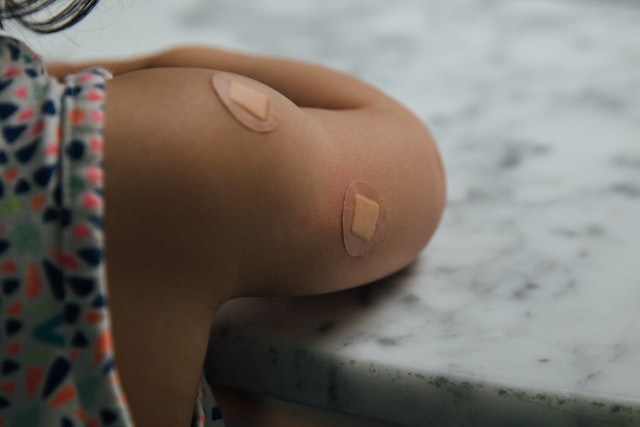Do the Benefits of COVID-19 Vaccine for Ages 5-11 Outweigh the Risks?

When people consider COVID-19 and its impact on children, they often look to data that shows the majority of COVID-19 cases in children are mild. That’s one reason why, ever since the FDA authorized the use of the vaccine for children between the ages of 5-11, some parents have been hesitant to get their children vaccinated against the Coronavirus. They want to know whether the benefit of a COVID-19 vaccination for those under 12 outweighs the risk, and if a COVID-19 vaccine is recommended for children.
We’re here to help share data and resources that could help you make an informed decision for your family.
Has COVID-19 affected children?
Since the start of the pandemic, nearly 2 million children in the 5-11 age group have been infected, totaling about 9% of U.S. cases. That number includes 8.3k hospitalized and 94 deaths, according to the data available. It’s enough to place COVID-19 in the top 10 causes of death among children between the ages of 5 and 11.
Beyond the physical effects of COVID-19, the pandemic has affected countless children’s mental health and education, as well. In October, the American Academy of Child and Adolescent Psychiatry and Children’s Hospital Association (AAP) even declared a national emergency in children’s mental health.
Is the COVID-19 vaccine safe for children ages 5-11?
As for COVID-19 prevention, clinical trials displayed a 90.7% effective rate. In addition, the trials found the most common reactions to be mild to moderate in nature. Symptoms like pain at the injection site, fatigue and headache were common, but there were no severe vaccine-related events like myocarditis or anaphylaxis.
What have experts said about the benefits and risks?
The committee overseeing FDA approval was given several modeling scenarios to properly evaluate the risks and benefits of giving a child the COVID-19 vaccine. With the exception of one scenario, all showed the benefits outweighed the risks.
Although the trials for children didn’t contain any cases of myocarditis, it was still a concern at the meeting. The real-world cases have mostly affected males under 30 years old, following their second dose of an mRNA vaccine.
That said, the CDC data shows about 42% of children may have already had COVID-19, which means they likely have an existing level of protection. The vaccine given to children is also a lower dose, which could be one possible explanation of the mild to moderate symptoms.
Some vaccine committee members did prefer to limit the vaccine to children with high-risk conditions only, which comprised a majority of COVID-19 hospitalizations among this age group. However, the vote itself simply presented whether the benefits outweigh the risks for 5-11 year old children, without getting into the more specific instances.
Where can I get my child vaccinated?
If you are interested in getting your child vaccinated, you should contact your child’s pediatrician to schedule a COVID-19 vaccination appointment or be referred to a pediatric vaccination site.
Of course, other safety measures like social distancing and wearing masks will continue to be effective in the prevention of outbreaks in places that children frequent, like schools and daycare centers. However, a COVID-19 vaccination offers the greatest protection, which is why it’s recommended for children ages 5-11 by the CDC.
